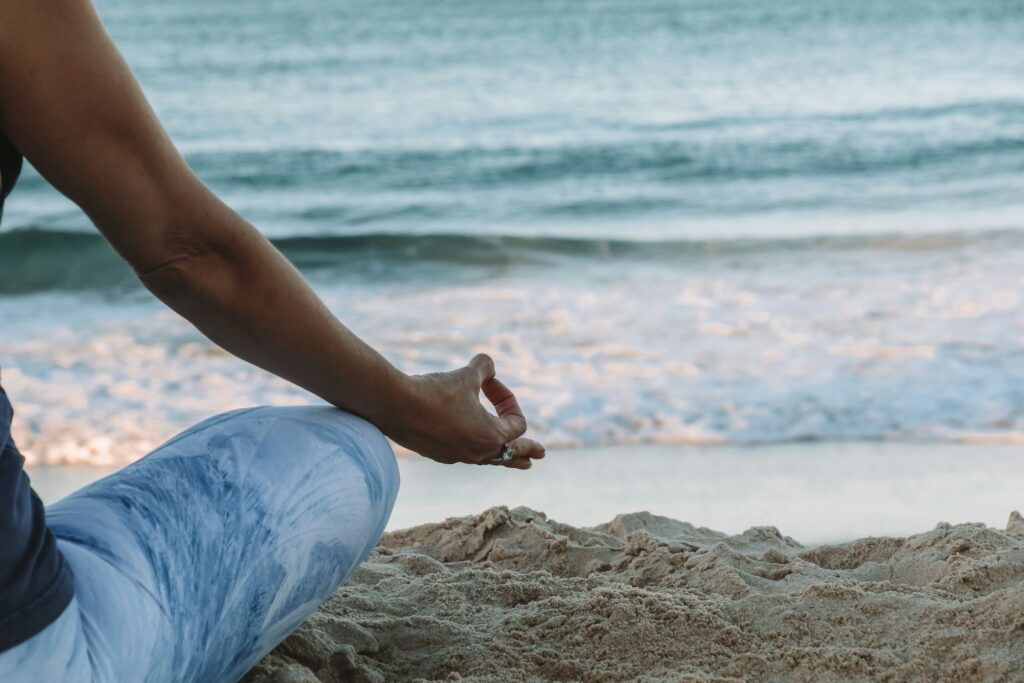Everyone is striving for the next big idea, the secret to remarkable creativity might just lie in a practice as ancient as time itself – mindfulness. Mindfulness not only enhances individual well-being but also acts as a catalyst for innovation.
The Essence of Mindfulness
At it’s core, mindfulness is about being present in the moment. It involves paying attention to your thoughts, feelings, and sensations without judgment. This practice has roots in ancient meditation traditions but has been embraced by modern psychology for its mental health benefits.
Mindfulness is more than just a buzzword; it’s a way of life. By focusing on the present, individuals can reduce stress, increase their emotional resilience, and improve their overall quality of life. Scientific research suggests that practicing mindfulness can lead to structural changes in the brain, improving functions related to attention, self-regulation, and cognitive flexibility.
For those new to the concept, mindfulness might sound like a daunting practice. However, it can be as a simple as taking a few minutes each day to focus on your breath or engaging in mindful walking. The key is consistency and the willingness to observe your present experience without distraction.
Innovation and Its Importance
Innovation is the lifeblood of progress in any field. it is the process of translating ideas into goods or services that create value. From technological advancements to artistic breakthroughs, innovation drives growth, competitiveness, and societal development.
In the business world, innovation is not just about new products; it’s about improving processes, finding novel solutions to problems, and staying ahead of the competition. Organizations that prioritize innovation are often more adaptable to market changes and can better meet the evolving needs of their customers.
Beyond business, innovation plays a critical role in addressing global challenges such as climate change, healthcare, and education. By fostering creative problem-solving, innovation helps us find sustainable solutions that improve quality of life.
Yet, innovation doesn’t happen in isolation. It requires a conducive environment where creativity can thrive – and this is where mindfulness come into play.
The Mindfulness-Innovation Connection
The relationship between mindfulness and innovation is both profound and multifaceted. At first glance, these concepts may seem unrelated, but a closer look reveals how mindfulness can significantly enhance one’s creative capabilities.
Mindfulness enhances attentional control, allowing individuals to focus deeply on the task at hand. By reducing distractions and fostering a calm mental state, mindfulness enables the mind to wander productively, leading to novel insights and ideas.
Additionally, mindfulness cultivates an open mindset, which is crucial for innovation. An open mind is more willing to explore unconventional paths and consider diverse perspectives—essential traits for generating breakthrough ideas. By quieting the inner critic and suspending judgment, mindfulness creates a safe space for creativity to flourish.
Furthermore, mindfulness practice can lead to increased emotional regulation, enabling individuals to handle failure and setbacks with grace. This resilience is vital for innovators, who often face numerous challenges before achieving success.
Mindfulness Enhances Creativity
Creativity is not just the domain of artists and writers; it is a skill that can be nurtured in anyone. By incorporating mindfulness into daily life, individuals can unlock untapped creative potential and apply it across various fields.
One of the key ways mindfulness enhances creativity is by improving divergent thinking—the ability to generate multiple solutions to a single problem. Divergent thinking is essential for brainstorming and ideation, as it allows for the exploration of many possibilities without immediate critique.
Mindfulness also nurtures curiosity, a fundamental driver of creativity. By fostering an attitude of curiosity, individuals are more likely to explore new ideas and experiment with different approaches, leading to innovative outcomes.
Lastly, mindfulness encourages self-reflection, which can lead to insight and personal growth. By understanding one’s strengths and weaknesses, individuals can better harness their creative abilities and apply them in meaningful ways.

The Science Behind Mindfulness and Creativity
Scientific studies provide compelling evidence for the positive effects of mindfulness on creativity. Neuroimaging research shows that mindfulness practice can lead to increased activation in brain regions associated with creativity, such as the prefrontal cortex and the default mode network.
Furthermore, mindfulness has been shown to enhance neuroplasticity—the brain’s ability to reorganize itself by forming new neural connections. This adaptability is crucial for creative thinking, as it allows the brain to form new associations and discover innovative solutions.
Research also indicates that mindfulness can improve working memory, enabling individuals to hold and manipulate information more effectively. This cognitive flexibility facilitates creative problem-solving and decision-making.
How to Practice Mindfulness for Enhanced Innovation
Integrating mindfulness into your routine doesn’t require drastic changes. Here are some practical tips for harnessing mindfulness to boost creativity and innovation:
Overcoming Barriers to Mindfulness
Despite its benefits, implementing mindfulness practices can come with challenges. Here are some common barriers and how to overcome them:
Success Stories of Mindful Innovators
Numerous individuals and organizations have leveraged mindfulness to achieve remarkable success in their respective fields. Here are a few inspiring examples:
Mindfulness is more than a trend; it’s a powerful tool for unlocking creativity and driving innovation. By cultivating presence, openness, and resilience, individuals and organizations can tap into their creative potential and make meaningful contributions to the world.
Whether you’re a business leader, an artist, or someone seeking personal growth, incorporating mindfulness into your life can lead to breakthroughs and lasting success. Explore the possibilities, experiment with mindfulness practices, and watch as your creativity and innovation flourish.
Claim your FREEBIES today and make every visit to Regarding You even more special!